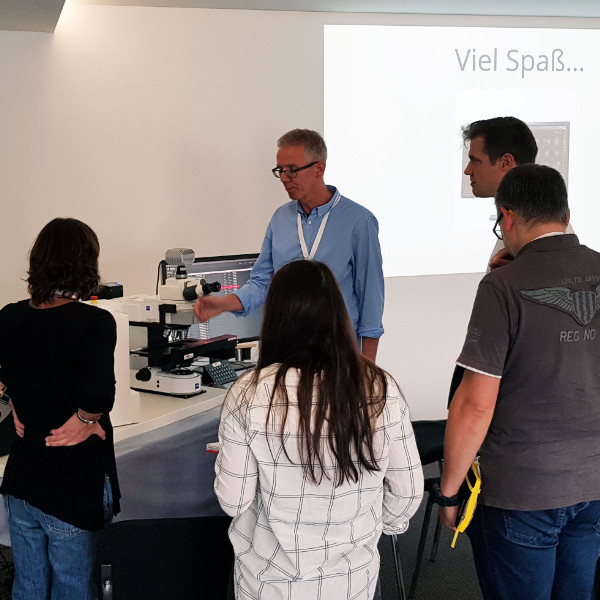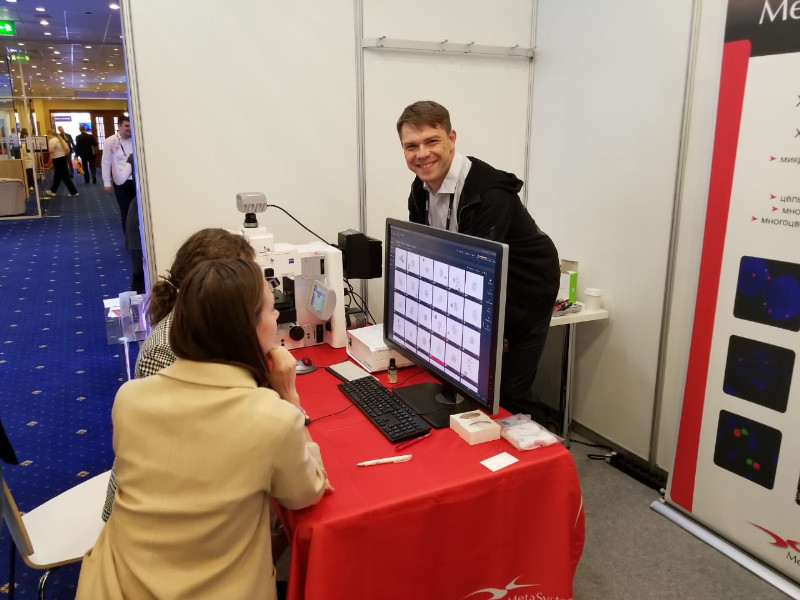About 100 guests from 36 countries met on the XVIII. MetaSystems Distributor Meeting (DM) in November to exchange experiences and to get to know new trends and developments at MetaSystems.

Our internet site may contain information that is not approved in all countries or regions. To ensure accuracy of content, please select your country/region of residence. Choose International if your country is not listed.
This information will be saved using cookies. To find out more about cookies, read our Privacy Policy.
Please select your country of residence. Choose International if your country is not listed.
Our internet site may contain information that is not approved in all countries or regions. To ensure accuracy of content, it is required that you select the site which is appropriate for your country of residence.
MetaSystems Probes has already certified a large part of its portfolio, according to IVDR. For organizational reasons, we currently provide only the IVDD product.
Discover all IVDR-certified products
XL IGH BA consists of an orange-labeled probe partly covering the constant region of the IGH locus at 14q32.3 and a green-labeled probe hybridizing to the variable distal region of the IGH locus at 14q32.3.
Probe maps are created in accordance with the intended purpose of the product. Solid colored bars do not necessarily indicate that the probe fully covers the indicated genomic region. Therefore, caution is advised when interpreting results generated through off-label use. Probe map details based on UCSC Genome Browser GRCh37/hg19. Map components not to scale. Further information is available on request.
Chromosomal translocations affecting the immunglobulin heavy chain (IGH) locus at 14q32.3 are recurrent in many types of lymphomas and plasma cell neoplasms. The consequence of these rearrangements is the dysregulation of genes juxtaposed to transcriptional enhancers in the IGH locus.
Burkitt lymphoma (BL) is a rare but fast growing type of non-Hodgkin lymphoma (NHL). The translocation between the MYC gene locus at 8q24 and the immunoglobulin genes (IG) for the kappa light chain at 2p12 (IGK), for the heavy chain at 14q32 (IGH) or for the lambda light chain at 22q11 (IGL) juxtapose the MYC gene to an IG enhancer. About 80% of BL patients have the MYC rearrangement t(8;14) while approximately 10% show a translocation between the MYC gene region and IGK or IGL.
Follicular lymphoma (FL) is the most common indolent form of the NHL. The reciprocal translocation t(14;18) is observed in about 85% of patients with FL and results in overexpression of the BCL-2 protein which is involved in the regulation of apoptosis.
About 1% of all cancers and 10% of hematologic malignancies are caused by multiple myelomas (MM). Translocations affecting the IGH locus are observed in about 40% of MM cases.
Due to the telomeric position of the IGH locus, 14q32.3 translocations may be easily missed by conventional cytogenetics. FISH is therefore a valuable tool in the diagnostic of translocations affecting the IGH locus.

Normal Cell:
Two green-orange (2GO) fusion signals.

Aberrant Cell (typical results):
One green-orange colocalization/fusion signal (1GO), one separate green (1G) and orange (1O) signal each resulting from a chromosome break in the relevant locus.
Certificate of Analysis (CoA)
or go to CoA DatabaseNeon, the outstanding MetaSystems case and image management system, offers many tools and helpful gadgets to streamline routine workflows, for example in cytogenetics labs. The second MetaSystems User Day, addressed to MetaSystems clients from Germany, Austria, and Switzerland, provided in different workshops knowledge helping to unleash the full power of the system.

The Congress 'Genetics of XXI Century' in Moscow, Russia (May 2019) has been one of the most important events for the professional international community of geneticists. Our partner company in Russia OOO MetaSystems considered it a good occasion to present the new camera CoolCube 4 connected to a state-of-the-art Neon system to the public.
